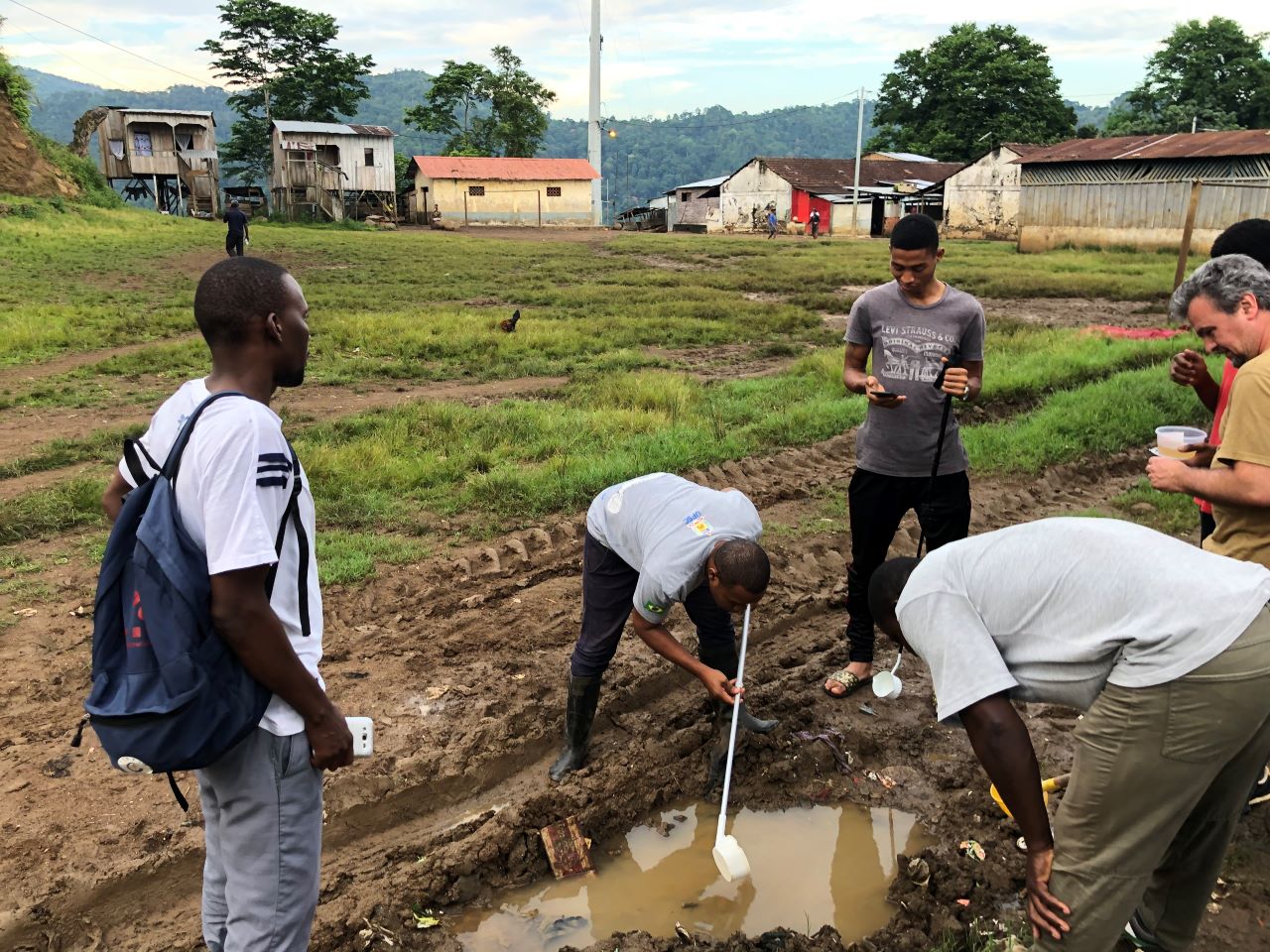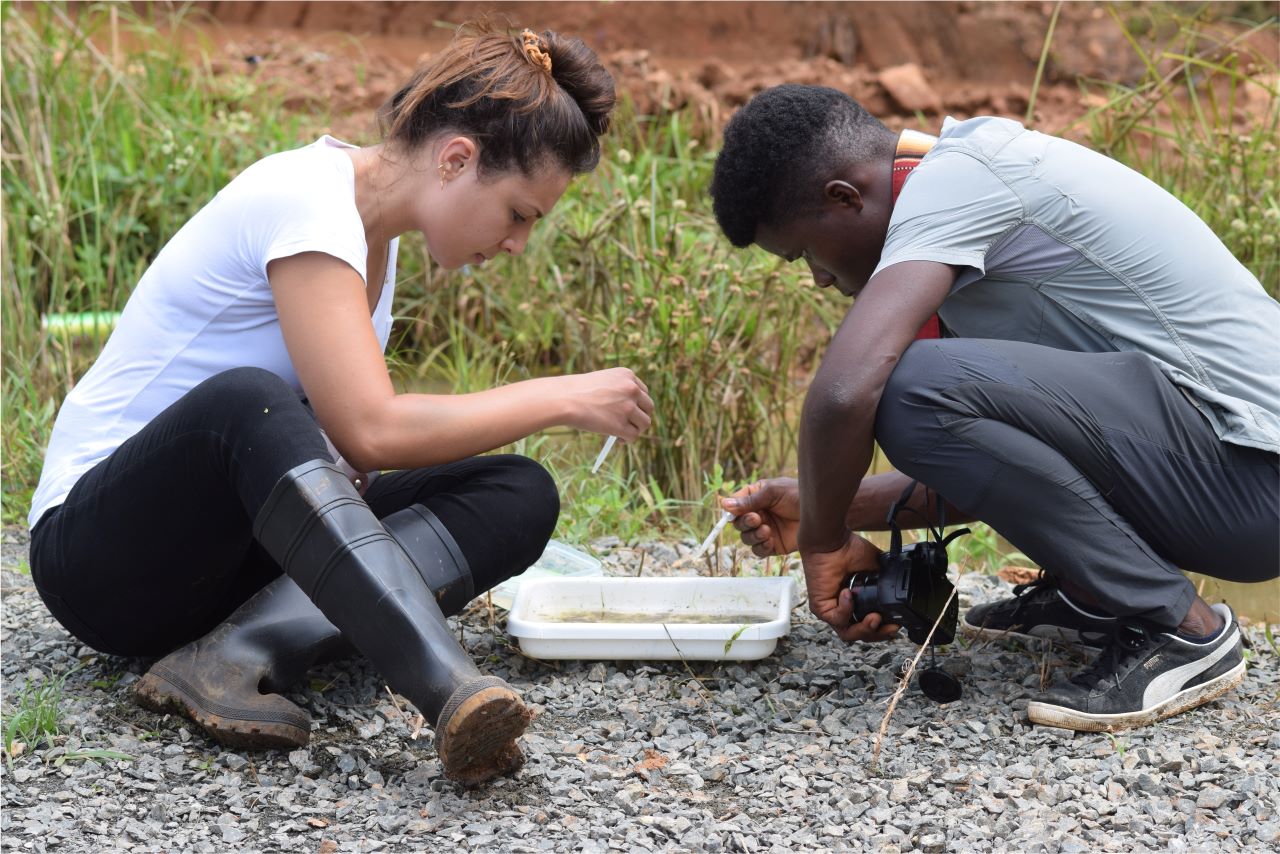Among the species of mosquitoes that transmit malaria, Anopheles coluzzii stands out for its resilience and adaptability. Found primarily across West Africa, this species is the only malaria-transmitting mosquito present on the islands of São Tomé and Príncipe, making it a focal point for our work at the University of California Malaria Initiative (UCMI).

UCMI’s team conducting field activities in São Tomé and Príncipe. Photograph: UCMI
At UCMI, we are working towards malaria elimination by developing genetic technologies to modify mosquitoes to prevent malaria transmission. In a recent publication, we looked at the genetics of A. coluzzii mosquitoes on the islands of São Tomé and Príncipe, offering insights into the local mosquito population composition and their movement.
Sampling the full geographic range of the species on both islands, we used two different approaches to estimate the mosquitoes’ dispersal: spatial autocorrelation and convolutional neural network models. Our findings? Mosquitoes on the islands seem to travel up to 3 and 7 kilometers, depending on the method of analysis. This difference underscores the complexity of mosquito movement and the value of using multiple approaches to gain a comprehensive understanding of dispersal dynamics. Overall, we found little genetic variation within mosquito populations, suggesting that A. coluzzii mosquitoes exist as a single Mendelian population on each island.

UCMI’s team conducting field activities in São Tomé and Príncipe. Photograph: UCMI
These findings suggest that a gene drive could spread efficiently within these mosquito populations, making the islands a promising site for potential future field evaluations of gene drive mosquitoes. This research represents an important step in the development of gene drive technologies as a tool to fight malaria. Our hope is that it will help inform future work on gene drive mosquitoes and contribute to the development of mathematical models to predict mosquito populations dynamics.
Read the full study here.
